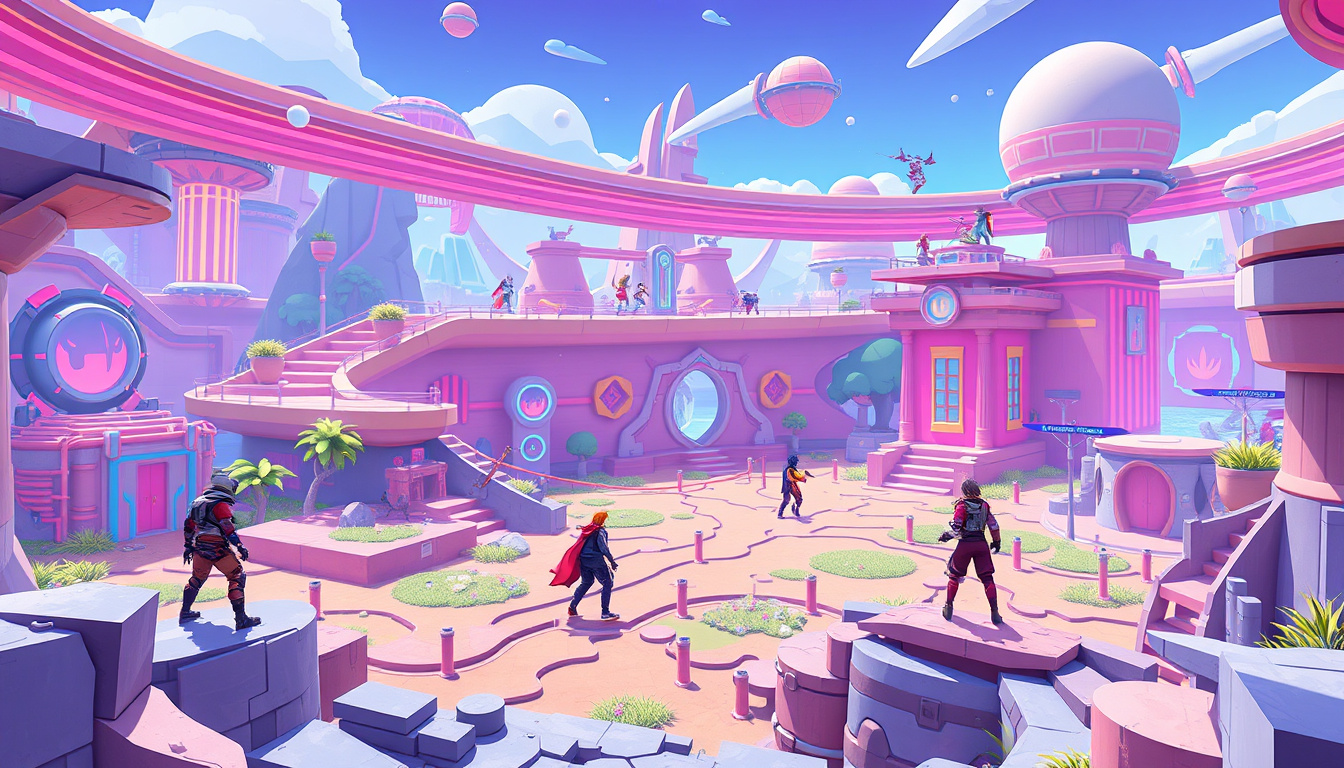Gaming Industry Trends: What’s Next After the Metaverse
The gaming industry continually evolves, with new technologies and user behaviors shaping its landscape. As we move beyond the buzz surrounding the Metaverse, it’s critical to explore the emerging gaming industry trends that will redefine how we play, interact, and experience entertainment. In this article, we will delve into significant developments such as cross-platform play, game streaming services, augmented reality, the evolution of gamer communities, and sustainability efforts within the industry. By understanding these trends, players, developers, and stakeholders can better navigate the exciting future that lies ahead.

Key Takeaways
- Cross-platform play is reshaping the way gamers interact across different devices.
- Game streaming services are transforming accessibility and broadening the gaming audience.
- Augmented Reality (AR) is becoming increasingly integral to enhancing game experiences.
- Gamer communities are evolving into more interactive and social spaces, fostering collaboration.
- Sustainability is emerging as a critical focus, with the industry adopting eco-friendly practices.
The Rise of Cross-Platform Play and Its Impact
As gamers increasingly seek seamless experiences across different devices, the rise of cross-platform play has become one of the most significant trends shaping the gaming industry. This evolution not only enables players to connect and compete with friends, regardless of their chosen platform, but it also expands the gaming community, creating more dynamic interactions. With the success of titles like Fortnite and Call of Duty, the demand for cross-play functionality has skyrocketed, compelling developers to prioritize this feature in their game designs. As we explore gaming industry trends, it’s clear that cross-platform play is poised to influence the future landscape of gaming, replacing traditional barriers with a more inclusive environment conducive to collaboration and competition. As the metaverse continues to evolve, the gaming world is likely to see further integration of these experiences, promising exciting innovations on the horizon.
Game Streaming Services: The Future of Accessibility
As the gaming industry evolves, one of the most significant trends shaping its future is the rise of game streaming services, which enhance accessibility for players around the globe. These platforms, such as NVIDIA GeForce Now and Google Stadia, allow users to stream high-quality games on various devices without the need for expensive hardware. This shift is particularly relevant in the context of the ongoing exploration of the metaverse, which has sparked widespread interest in immersive digital experiences. Gaming industry trends indicate that as more players seek seamless access to a diverse library of games, cloud gaming could emerge as a key solution, bridging the gap between traditional gaming and the expansive possibilities presented by the metaverse. By harnessing the power of high-speed internet and advancements in cloud technology, game streaming services promise to revolutionize how gamers engage with their favorite titles, making the gaming experience more interactive and inclusive than ever before.
‘The only way to do great work is to love what you do.’ – Steve Jobs

Augmented Reality (AR) and Its Role in Gaming
Augmented Reality (AR) is rapidly transforming the gaming industry, creating immersive experiences that blend the digital and physical worlds. As players seek new ways to engage with games, AR stands out as a significant trend following the metaverse craze. By superimposing digital elements onto the real world, AR allows gamers to interact with virtual characters and environments in their own spaces, enhancing player engagement and immersion. Popular titles like Pokémon GO and Minecraft Earth have already showcased the potential of AR, illustrating how it can redefine gameplay mechanics and social interactions within gaming. The gaming industry trends indicate that this technology is just the beginning; as developers harness the increasing capabilities of smartphones and AR headsets, we can anticipate a wave of innovative games that further blur the lines between reality and virtual experiences. As the industry evolves, AR is poised to lead the charge in redefining how we perceive gaming, making it a pivotal area to watch for enthusiasts and developers alike.
The Evolution of Gamer Communities and Social Interaction
The evolution of gamer communities and social interaction has been significantly influenced by emerging technologies and platforms, marking a transformative phase in the gaming industry. As we explore the current gaming industry trends, it becomes clear that the metaverse, while groundbreaking, is only the tip of the iceberg for what’s next. With the rise of virtual reality (VR) and augmented reality (AR), gamers are experiencing immersive environments that enhance social connectivity like never before. Additionally, platforms such as Discord and Twitch have redefined how players interact, allowing for real-time communication and community building around favorite games. The future promises even more interconnected experiences through cross-platform gaming and blockchain technology, which could facilitate decentralized gaming economies and enhance player ownership. Understanding these trends is crucial for anyone looking to navigate the dynamic landscape of the gaming industry, as they shape not just gameplay, but the very essence of how gamers form friendships and communities.

Sustainability in Gaming: Eco-Friendly Practices and Corporate Responsibility
As the gaming industry continues to evolve, sustainability has emerged as a critical focus. Eco-friendly practices within the gaming sector not only cater to a growing consumer demand for responsible gaming but also highlight corporate responsibility in a rapidly changing environment. Recent gaming industry trends indicate a shift towards integrating sustainability into game design, production, and distribution, with initiatives ranging from energy-efficient data centers to the use of recyclable materials in packaging. Companies are also prioritizing carbon-neutral goals, leveraging renewable energy sources, and promoting digital downloads to reduce physical waste. As we look to the future, the gaming industry must continue to adapt by embracing innovative solutions that align with sustainability principles, ensuring a healthier planet for gamers and the next generation. What’s next after the Metaverse may very well depend on how well the industry responds to these sustainable calls, shaping not just engaging virtual experiences but also a more responsible gaming ecosystem.
Frequently Asked Questions
What are the key trends in the gaming industry following the Metaverse?
Key trends include the rise of cross-platform play, growth in game streaming services, advancements in augmented reality (AR), evolution of gamer communities, and an emphasis on sustainability within the industry.
How is cross-platform play impacting the gaming experience?
Cross-platform play is enhancing the gaming experience by allowing players on different devices to play together, increasing player bases and fostering inclusive gaming communities.
What role do game streaming services play in the future of gaming?
Game streaming services are making gaming more accessible by allowing players to enjoy high-quality games without the need for expensive hardware, and enabling play on multiple devices.
How is augmented reality (AR) changing the way we experience games?
AR is blending the digital and physical worlds, creating immersive experiences that engage players in unique ways, and expanding possibilities for gameplay and interaction.
What measures are being taken for sustainability in the gaming industry?
The gaming industry is adopting eco-friendly practices such as reducing carbon footprints through energy-efficient data centers, promoting digital downloads over physical copies, and engaging in responsible corporate practices.
